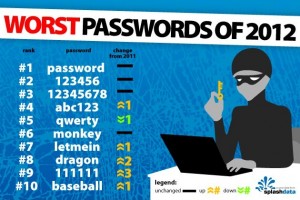In this post I would like to tell the stories of two young gentlemen, Aaran Swartz and Bradley Manning.
Many of you will know these names. Aaron is unfortunately all over the web this week due to his recent suicide, and here in Boston there is a lot of soul searching going on.
Aaron started young, at the age of 14 he was part of a working group that developed the RSS system. He was co-owner of Reddit, having been owner of Infogami, a company that merged to form the Reddit that we know today. He was most importantly an online activist, fighting for open access and against the Stop Online Piracy Act.
His activism got him into trouble with the police however. In the first instance he was investigated for publishing documents managed by the Administrative Office of the US Courts. These were public documents but the administrative office charged per page for individuals to see them. Aaron did not believe that this was fair so decided to take the chosen course of action. After an investigation he was not charged however, so no case was ever brought.
His second brush with the law went rather differently however. In 2011 he was arrested and charged (amongst other things) with fraud and unlawfully taking information from a computer. He had allegedly walked into the MIT library, attached his laptop to the system and downloaded 4 million academic articles.
His complaint was that the database holding the articles (JSTOR) were unfairly paying royalties to article publishers and not authors, and in doing so and charging for their service they were restricting public access. JSTOR did not push for charges and made no complaint, but Massachusetts Attorneys did, stating that “stealing is stealing, whether you use a computer command or a crowbar, and whether you take documents, data or dollars”.
The charges carried a possible prison term of 35 years and a 1 million dollar fine.
After Aaron’s death his family criticized both MIT for not behaving responsibly when the activity was discovered and the US attorneys for disproportionately pursuing criminal charges. Some people argue that the problem lies in the law however, because it does not differentiate between taking things for profit and for other reasons. In effect stealing money from the bank is the same as stealing articles, even if the aim of stealing the articles is not to make money from the crime.
The BBC has a collection of messages from many of the best known architects of the cyber world and they really demonstrate the great esteem that the entire community held for Aaron. We do not know and will never know why he chose to take his own life, nor if the possible 35 years in prison played on his mind and pushed him into it, but as I stated at the beginning there is a lot of soul searching here about how the entire event was handled.
To Bradley Manning. Bradley is another young man who got on the wrong side of the authorities. He is a soldier who worked in intelligence, not high ranking but with access to a certain amount of low level classified data. He was arrested in Iraq in 2010 on suspicion of passing data to Wikileaks and is currently in a military prison awaiting trial.
Before his arrest Bradley was possibly not in the best frame of mind. Life in Iraq is not easy, he was taunted for his presumed homosexuality and self acknowledged gender difficulties and had outbursts of anger and self reclusion. He was not transferred though, nor his access to classified information revoked.
At some point Manning allegedly forwarded what were later to be known as the Iraq War Logs and Afghan War logs to Wikileaks, a crime that prosecutors say he admitted to in online chats.
He was charged with Aiding the enemy, a crime that carries the death penalty, although prosecutors have stated that they would only ask for life in prison without parole. An offer was made for a guilty plea in return for 16 years in prison but Manning maintained his not guilty stance.
Once again Manning’s presumed crime was not committed for profit but in order to give the public information that he believed they had a right to. The most known of all of the materials is the killing of the 2 Reuters journalists by a US helicopter crew, a sickening thing to watch.
Manning was very unhappy about the type of war he saw and felt that the general public needed to see what he had seen, and referring to the helicopter killing video said something in one of his chats that I believe expresses his motivation; “well what would you have done if you had seen it?”



